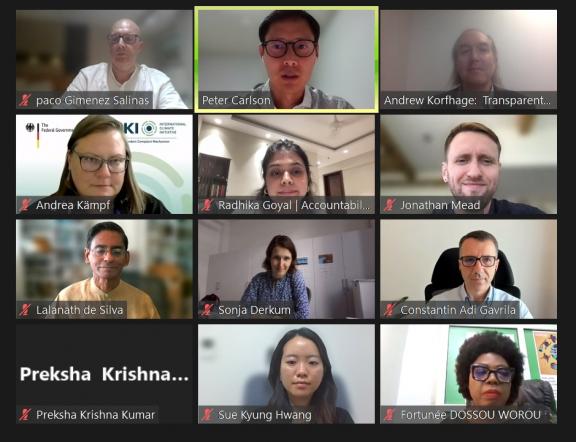A Discussion on Worker and Labour Rights in the Context of Grievance Redress Mechanisms: The 9th GRAM Partnership Webinar
Workers and labourers form the crux of an organization or institution, and therefore must be provided sufficient and effective methods of recourse when a problem arises. However, when your employer is the source of your grievance, it can be difficult to confront the situation due to a lack of accountability, avenues for redress, knowledge about relevant policies or mechanisms, or even disproportionate power structures. Independent organisations such as Transparentem and Accountability Counsel, and other International Accountability Mechanisms (IAMs) aim to provide remedy, redress and support to affected workers. It is with this focus that on July 5, 2023, the Independent Redress Mechanism (IRM) of the Green Climate Fund co-hosted the 9th webinar of the Grievance Redress and Accountability Mechanism (GRAM) partnership, with the Independent Complaint Mechanism of the International Climate Initiative (IKI ICM). The discussion focused on worker and labour rights in grievance redress mechanisms, accountability in international financial institutions (IFIs), as well as pathways to redress for aggrieved workers.
The panel was moderated by Peter Carlson, the Communications Officer at the IRM, and featured five speakers. Andrea Kampf, the Head of the Complaints Office of the IKI ICM, opened the webinar with a brief introduction to the topic of discussion. She also provided an overview of the work that the IKI ICM engages with in terms of environmental and social safeguards complaints, misuse of funds and the increased attention to and need for supply chain due diligence. The next speaker, Lalanath de Silva, the Managing Director of Transparentem and a member of the independent expert panel of IKI ICM, provided a thorough background overview of the international regulations and conventions governing worker rights, forced labour and child labour. He talked about the international labour instruments and conventions as formulated by the International Labour Organization (ILO) and the United Nations, core labour standards, indicators of forced labour, and conventions on child labour. He also discussed the International Finance Corporation’s (IFC) safeguard laws with regards to IFIs.
Following this presentation, Jonathan Mead, the Director of Investigations at Transparentem offered a brief introduction to the work and investigative process at Transparentem. He spoke about how their investigations speak directly to affected parties, whether that is individuals or communities, about the labour and environmental issues they are facing, to craft and deliver reports detailing both the abuses and recommendations for improving working conditions. Andrew Korfhage, the Director of Strategic Engagement at Transparentem, then took us through the typical grievance redressal process, drawing from case studies and experiences of workers who faced poor conditions. He concluded his presentation by drawing from Transparentem’s findings and research from investigations, with recommendations on how to strengthen grievance redress mechanisms and pathways for workers, particularly migrant labourers.
The last speaker for the day was Radhika Goyal, a policy associate at the Accountability Counsel. Radhika shared insights from her research and advocacy work on international financial institutions’ accountability to the communities they impact. She also shared learnings and findings from a case study in Liberia and discussed potential avenues of remedy. The webinar concluded with an insightful Q&A session where participants asked panelists about the discussion and the panelists’ work.

